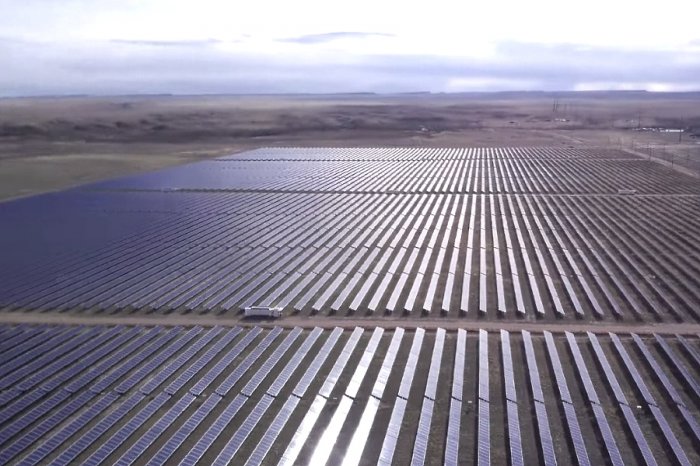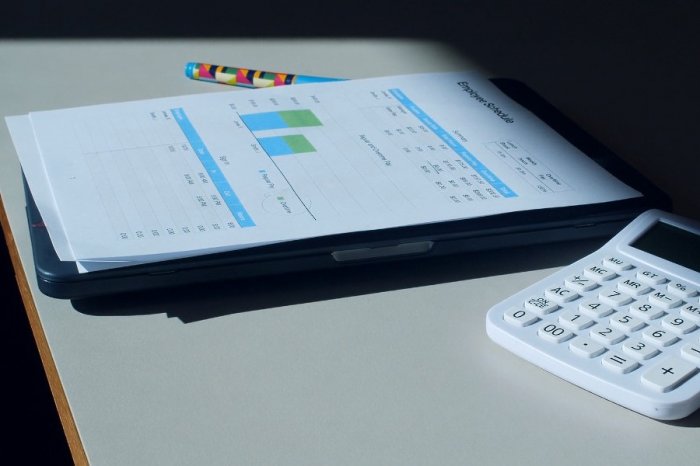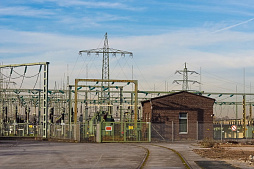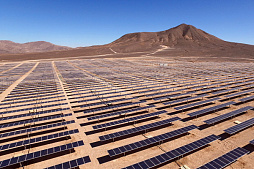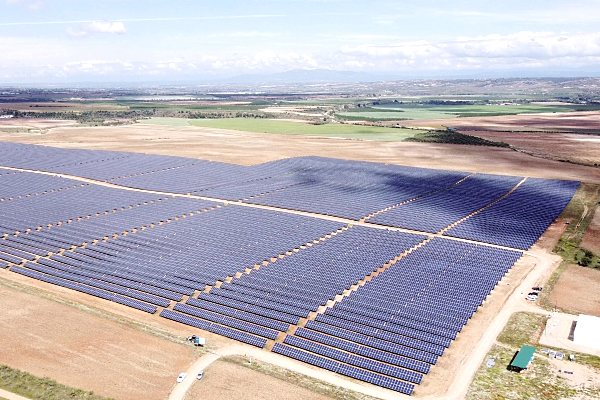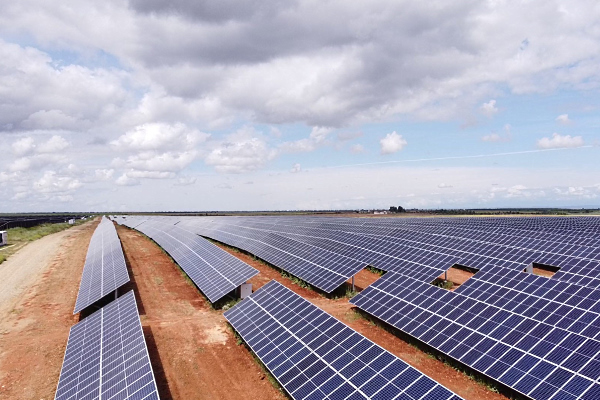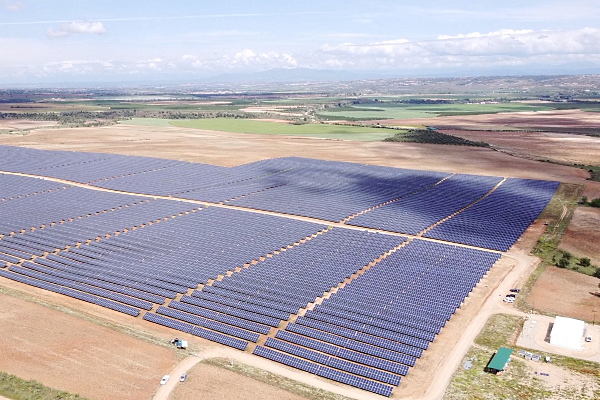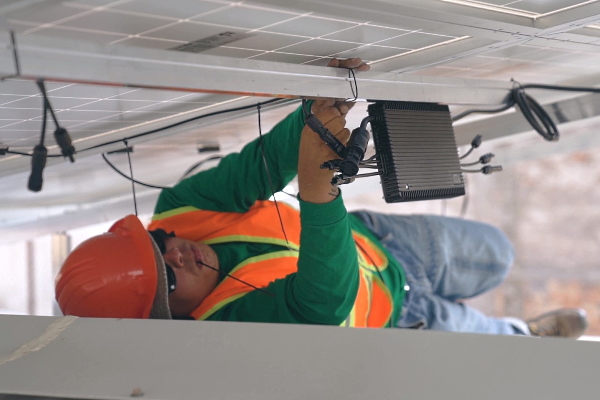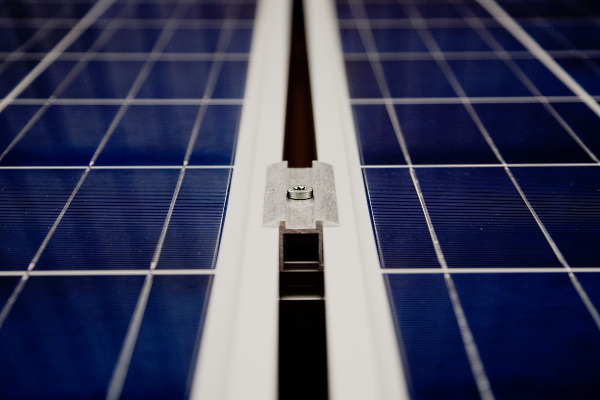To consider an application for financing, fill out the form and send it to us by e-mail along with the project brief, or contact our experts
Our team offers energy project management and general contracting for the construction of solar power plants.
EPC contracting is currently the most widely used model for large energy projects.
It involves engineering design, procurement and construction of the facility by a single professional contractor.
By signing an EPC contact, the customer shifts all responsibility for the implementation of the project to an engineering company that has sufficient technical and financial resources. The EPC contractor also provides consulting services at all stages of the project and / or after its completion and trains the customer's personnel.
The LBFL team in such projects plays a key role in the entire project cycle, from financing to the construction of a solar power plant and its operation.
We understand that the customer needs more than just finding builders.
The general contractor must be responsible for the implementation of the entire range of works, and for a well-designed and reliably built power facility.
ENGINEERING.
LBFL offers financing and engineering design of solar power plants. Together with our partners, we carry out data collection and analysis, development of technical solutions, tests, development of pre-project documentation and detailed drawings, as well as individual engineering services at various stages of the project.
PROCUREMENT.
The company purchases and delivers equipment from the world's leading manufacturers that meet each project as much as possible. Thanks to many years of cooperation with suppliers from Europe and the USA, we are ready to offer our customers the perfect balance of price and quality.
CONSTRUCTION.
The company performs a full range of construction, assembly and installation of photovoltaic equipment, substations and power lines in extreme environmental conditions, using advanced technologies and materials.
Development of the solar energy sector in Saudi Arabia: current state and prospects
Riyadh recently pledged to become a global leader in solar energy production over the next few years, threatening to invest $ 350 billion in innovative energy projects.In 2018, the country announced that it plans to generate 10% of its electricity from solar and wind farms by 2023.
In March 2018, Crown Prince Mohammed bin Salman announced that he had reached a $ 200 billion agreement with Japan's SoftBank Group to build solar capacity that would triple the country's electricity production.
Riyadh's short-term goal is to increase the installed capacity of solar power plants to 20 gigawatts by 2023, and to bring this figure to 40 gigawatts in 2030. The Kingdom of Saudi Arabia has decided to completely phase out the use of fossil fuels by 2040. Traditional oil will be replaced by renewable sources of energy from the sun and wind.
This ambitious plan includes the Al Faisaliah 600 MW Solar PV Plant, and the Saudi Renewable Energy Authority plans to open four more projects with an installed capacity of 300 MW each.
Minister of Investment of Saudi Arabia Khalid al-Falih compared the significance of the events taking place in the energy sector with the discovery of oil fields in the 1930s. According to him, the economic transition to renewable energy will take about 10 to 20 years.
The government estimates that Saudi Arabia will need more than 120 GW to cover peak loads by 2032.
Along with solar and wind farms, nuclear power must also support this challenging energy transition to carbon-free sources.
One of the key factors affecting the transformation of Saudi Arabia's energy mix will be further fluctuations in hydrocarbon prices. However, the country's long-term strategy to phase out oil and gas remains unchanged.
This opens up fantastic opportunities for companies interested in building solar power plants in the vast desert of the Arabian Peninsula.
EPC services in the construction of solar power plants in Saudi Arabia
EPC contract (the abbreviation is formed by the words Engineering, Procurement, Construction) is one of the most common types of contracts concluded between customers and contractors in the implementation of large energy projects.According to this contract, the EPC contractor carries out a full cycle of work and is responsible for the risks associated with the construction of the solar power plant and its infrastructure.
EPC is just one of several business relationship models. For example, if the customer is interested in participating in management at different stages of the construction process (selection of engineering teams, suppliers, construction subcontractors), then another model called EPCM contract (EPC + Management) is recommended.
Advantages of an EPC contract for customers
The EPC contract is based on the execution of three processes (Engineering, Procurement and Construction) by a single EPC contractor, which is also called the general contractor.The contract establishes the financial and legal responsibility of the contractor in terms of the announced construction stages. Thanks to this model, the customer receives a turnkey project with little or no direct control and management. The EPC contractor also concludes contracts with subcontractors.
If the EPC contractor has sufficient qualifications, personnel and the necessary equipment, then he can carry out the work without the involvement of third-party contractors.
In this case, such a company is sometimes called a full cycle EPC contractor.
In Saudi Arabia, EPC contracts have been in use for a long time, and this model is especially important in the energy sector. This model is widely used in the construction of large-scale solar power plants, which involves a commitment to local consumers and requires careful planning, resource management and meeting deadlines.
The EPC turnkey contract has obvious advantages, which makes it, along with the EPCM and EPC + Financing model, one of the most common types of contract.
Among the advantages, customers most often name the following:
• Simplification of project management for the customer. Construction on the principle of "one window", when all issues are resolved through the general contractor, allows the customer to save on his own construction department.
• Clarification of technical characteristics, cost and timing of projects in the contract. Thanks to this form, financial and legal risks are significantly reduced, since the EPC contractor bears all legal and financial responsibility for the project.
• Freeing up time by the customer for other projects, since the customer company does not waste time and resources on construction.
However, all the advantages of an EPC contract in the solar energy sector must be considered in comparison with alternative options. Such alternatives are the Multi-Lot and EPCM models.
Other types of contracts in the solar energy sector
The most common alternative types of contracts are Multi-Lot and EPCM, which are also used in the implementation of large energy projects in Saudi Arabia and other countries.Multi-Lot. This model is also called Multi-Prime. In this case, the customer independently concludes many separate contracts with subcontractors and manages them himself, creating an internal division of the company for this.
EPCM (M stands for "Management").
The customer simultaneously concludes a contract with the general contractor, and separate direct contracts with subcontractors. At the same time, project management is carried out by coordinating the actions of the customer and the general contractor.
Based on the comparison with these models, the EPC contract appears to be the most costly in terms of financing. The total cost of the EPCM contract turns out to be 5-10% lower, since a significant part of the management processes is carried out by the customer. Multi-Lot can be 15-30% cheaper than EPC.
In addition, the EPCM and Multi-Lot models are significantly more flexible than the EPC in terms of financing. They also allow the customer to be more involved in the project, which provides maximum control over the end result.
So why are EPC contracts so popular in the construction of solar power plants in Saudi Arabia?
Does shifting responsibility to a single contractor justify the high costs?
The EPC model is beneficial to the customer in the following cases:
• The company does not have its own construction project management service.
• It is inappropriate for the customer to take on (share) the relevant risks.
• The customer is actively involved in other projects, and the company does not have sufficient management resources to switch them to a new facility.
• There is a reliable contractor who can be fully entrusted with the construction of a solar power plant from A to Z.
EPC contracts are most often concluded for energy projects financed by banks or other financial institutions.
Banks expect their client to bear minimal risks, and the EPC contract shifts most of the risk to the EPC contractor.
Any increase in the cost of work, materials, equipment in comparison with the prices of the contract is paid by the contractor, unless these additional costs are caused by force majeure or changes in the project at the initiative of the customer.
How to choose a reliable general and EPC contractor in Saudi Arabia
EPC contracts in solar energy are considered the best option when it comes to the implementation of large projects.Today Saudi Arabia is a very attractive market for engineering companies from all over the world, so the customer can only organize a tender, choose the best contractor and entrust him with his project.
How to choose the right contractor?
This is a common question for all energy companies in the Middle East that are actively recruiting third-party engineering firms to implement their projects.
Checklists with standard criteria allow the customer to weed out the most incompetent and unscrupulous performers, but do not exclude the possibility of concluding a contract with an ineffective and unreliable counterparty, especially when it comes to projects that are complex from a technological point of view. The most effective format for customer interaction with a third-party contractor is EPC.
The EPC contract is widely used in projects where the general contractor can accurately assess the size of the forthcoming costs, its technological and human resources and potential risks.
It's not just about choosing a performer. An EPC contractor is a partner who will enrich the customer's project with their experience, take a fresh look at standard technological processes and suggest the best ways to reduce costs. Therefore, it is not enough just to look for a general contractor who is ready to complete the assigned tasks on time.
Among hundreds of engineering companies in the Saudi Arabian market, the customer needs to choose the one that will ensure the implementation of a solar energy project at the highest technical and economic level.
General contractor selection process
There are a number of recommendations for organizing the process of selecting an EPC contractor that will best meet the project's need in all areas.The first step is to consider the resources of a potential EPC contractor.
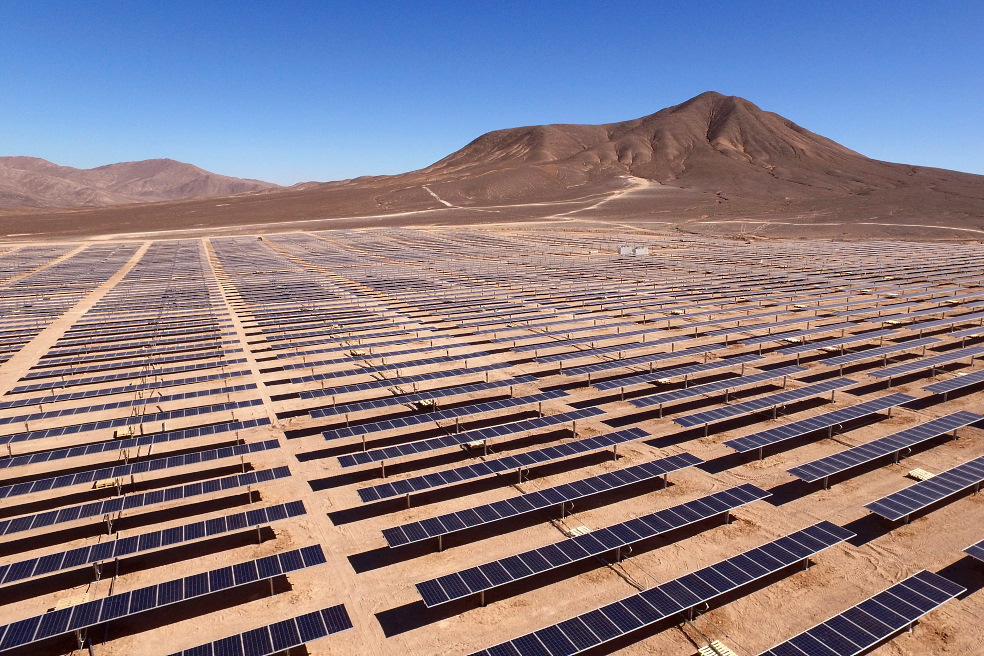
Most of the customers tend to pay close attention to the issues of tangible assets, as well as the number and level of training of the staff of the executing company.
But numbers are not enough. It is necessary to request information about completed projects and contracts in progress. This information will allow drawing conclusions about the degree of workload of those structural divisions of the company that will be directly involved in the implementation of the project.
Another important activity in the process of selecting an EPC contractor is visiting the offices of potential candidates. The time spent on these visits will allow the customer to make sure that the real state of the organization corresponds to the declared one. This will make it possible to assess the state of the workplace, the technological equipment of the office, the number and real competence of the staff.
The skills, competencies, knowledge of the general contractor's employees are an important point that should be considered when choosing a contractor. There is a basic list of required documents, but most likely all applicants will meet the standards.
The level of training of engineers and specialists in the field of project management in Saudi Arabia is quite high. Large institutions such as King Abdulaziz University and Alfaisal University have trained many qualified specialists for local industry and energy. In addition, some employees of local engineering firms are studying abroad, including in the United States.
The long list of completed projects says a lot, but previously implemented projects are not always the result of the work of the current staff.
The best employees could leave the firm for one reason or another. Therefore, it is extremely important to study the real human resources.
For a complete picture, it is wise to take a look at the list of technicians who will be involved in the project.
Why not evaluate their professional experience, education, certificates and diplomas?
If the company has collected really high-quality personnel in its team, there is no reason for its management to hide this information.
Assessing the reputation of an engineering firm
When selecting an EPC contractor, it is important to pay attention to the behavior of the company's management and engineers, including communication with the customer in the development and implementation of technical solutions.The construction of solar power plants often requires innovative approaches, and some technical solutions are born as a result of open discussion, taking into account the limitations of a particular project and the wishes of the customer. Undoubtedly, the EPC contractor, as a rule, is better versed in the technological and legal aspects of the issue, but this does not mean that the cooperative approach to making certain decisions is losing its relevance.
It should also be noted that sometimes the customer's technical solutions can be very controversial.
In such a case, the responsible contractor should advise the client on the most correct way to achieve the set goals.
In the course of a personal meeting with the contractor's project team, it is necessary to ask a number of difficult questions regarding technological and management solutions. It is important to carry out this kind of procedure with all employees who will take part in the project, since the competencies of each of them can be clearly segmented.
Is the contractor competent in project cost estimation?
The EPC contract bears the risk of exceeding the originally agreed value.All financial obligations are borne by the contractor, but in the event of an excessive underestimation of the initial cost, the customer loses the most. Let us explain why.
Potential costs not accurately calculated can result in serious financial losses both at the stage of project development and at the stage of its implementation. It is extremely important to understand that the quality of the assessment of all financial resources and possible risks depends entirely on the competence of the customer.
Therefore, in the process of assessing the financial parameters of the project, it makes sense to contact third-party experts who will give approximate figures.
Further, a question about the approximate cost of the project can be asked to a potential EPC contractor. If the expert figures and the figures received from the engineering company are approximately the same, it can be concluded that the potential contractor is highly competent in this matter.
Approach to the design and construction process
Financial and legal difficulties in the construction of large-scale energy facilities are quite common, especially if the client is not familiar with the specifics of Saudi Arabian legislation.Contrary to popular belief, most potential problems can be prevented.
Problems such as deadlines and budget overruns often arise due to mistakes made in the design, as well as due to lack of control within the contractor company or insufficient responsibility of the project team to develop and implement technical solutions. Therefore, it is worth examining the attitude of a potential contractor to the design process and achieving the set goals.
Here are the basic requirements for an EPC contractor in the construction of solar power plants:
• Experience, reputation and a list of completed projects. The ideal candidate has been on the market for a long time, has a large number of successfully completed projects and is in high demand in the energy sector.
• Clear internal standards that define internal organizational processes, a responsible approach to the development of projects, as well as the rules for communication with the customer.
• Responsible attitude of the EPC contractor to industrial safety issues, both during construction and during operation throughout the entire life cycle of the facility.
• The commitment of the general contractor's engineering team to design facilities taking into account the interests of the customer and the latest technical standards.
• Use of energy-efficient and environmentally friendly technological solutions that not only reduce costs during construction, but also maximize the safety of the environment.
A properly selected general contractor will not only fulfill the tasks assigned to him at the time specified by the customer, but will also provide highly efficient technological solutions.
This will increase profitability, minimize risks, and lower overall costs of the project.
LBFL: financing and project management in Saudi Arabia
Solar energy is an attractive industry for investors.In order to reduce its dependence on fossil fuels, Saudi Arabia is actively developing projects to create alternative energy sources, including through government funding.
This sector attracts large companies, since favorable conditions are created at the state level for the implementation of highly efficient projects and the development of energy production from renewable energy sources.
The construction of a solar power plant, as well as the operation of an energy company in a highly competitive environment, is impossible without professional project management.
Project management in the solar energy sector involves planning, coordinating human and material resources throughout the life cycle of a project to achieve its objectives.
The use of innovative technologies and management methods contributes to the achievement of the results specified in the EPC contract in terms of technical parameters, cost, construction time and quality.
Features of modern energy sector:
• Technical complexity of engineering design, construction, connection and operation of power plants.
• Simultaneous generation and consumption of energy, with the exception of expensive energy storage technologies.
• A complex technological cycle of electricity generation, requiring the coordinated work of various companies.
• The need for centralized monitoring and management of the power plant and its infrastructure as a whole.
• Ensuring the reliability and safety of operation throughout the entire life cycle.
All of the above makes the energy sector a costly, intellectual and knowledge-intensive industry with a complex investment cycle.
Energy production planning is difficult in this sector, especially when it comes to unpredictable renewable sources such as wind and sun.
Uneven consumption, complexity of energy production and storage management pose significant business risks. These risks require timely identification, assessment and management.
Timely analysis and accounting of risks in solar energy allows customers to make informed decisions on costs, improve the financial performance of the company (rational production of different types of energy, ensuring energy security).
Link Bridge Financial LTDA, an international company with many years of experience in the energy sector, offers financing and professional project management in Saudi Arabia and other countries in the Middle East.
We help to reduce construction time, prevent mistakes, optimize the budget and ensure that the work is completed in accordance with the approved schedule.
Contact our representatives to find out more.





